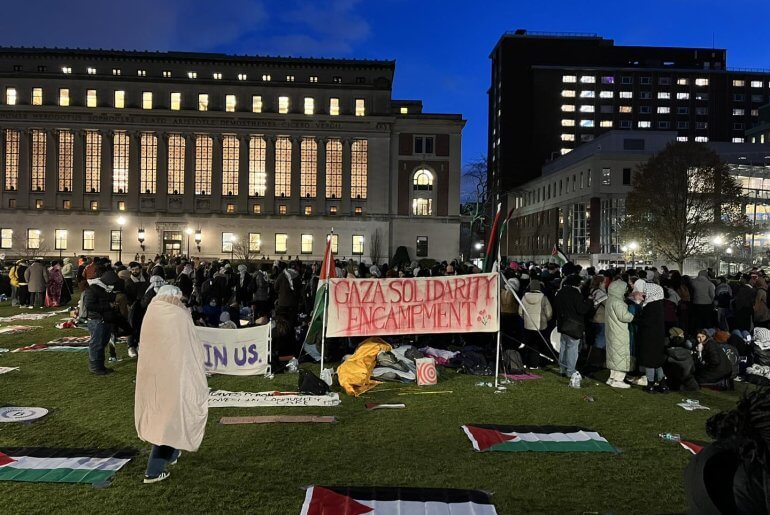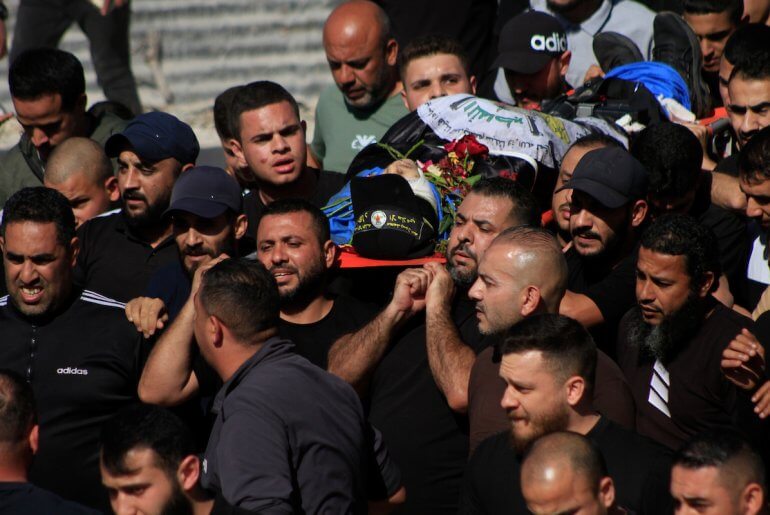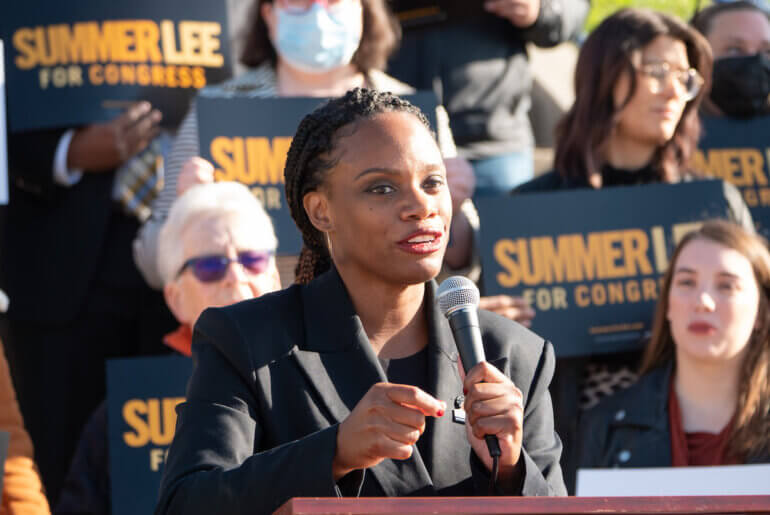This is the second episode in a five-part series produced by Mondoweiss on COVID-19 in Palestine. The series explores how the virus is affecting the social, economic, and political situation in the occupied territory, where Palestinians are living under both a global pandemic, and the Israeli occupation. You can view the entire series here – mondoweiss.net/covid19series.
Imagine being left to fend for yourself against the coronavirus, as your home is threatened by demolition, and your family is living under military occupation.
That is the reality for Palestinians living in the village of Al-Walaja, nestled between the hills of Bethlehem and Jerusalem in the southern occupied West Bank.
Al-Walaja is one of hundreds of Palestinian towns and villages located in Area C of the occupied West Bank. Under the Oslo Accords, 60% of the West Bank was put under full Israeli security and civilian control.
That means that everything from law enforcement, to planning, and construction is under the control of the Israeli military, making villages like this extremely susceptible to things like displacement and home demolitions.
“In Palestine in general, and specifically in all the places in Area C, we face aggressive attacks from the [Israeli] occupation,” local activist Mahmoud al-Araj told Mondoweiss.
“Forcible displacement, home demolitions, attacks on civilians, everything,” he said. “Theft of land and harassment, anything terrible you can imagine, the Israeli government is doing it in Area C.”
During the coronavirus pandemic, Palestinians living in Area C are facing a new set of challenges
“These days we miss a lot of things. We have to stay in our homes [because of COVID-19], and because of the separation wall we can’t visit our land, we can’t move around,” al-Araj said.
“All of this has negatively affected our lives. We are stuck between the virus and the occupation. It’s really difficult.”
Because al-Walaja is located in Area C, the Palestinian Authority has been prevented from helping with containment efforts here.
The Israeli government, legally responsible for civilian affairs and development in Area C, has provided nothing for its Palestinian subjects in the way of coronavirus testing, treatment, or containment efforts.
In fact, Palestinians say that Israel has done the opposite, and has actively been hindering their efforts to curb the spread of the virus in their communities.
When the coronavirus first hit the West Bank residents of the village set up a flying checkpoint at the entrance of al-Walaja, in order to control who was coming in and out of the village.
But just hours after setting up the checkpoint, Israeli soldiers came into the village pushed the cement blocks to the side and told the residents that they weren’t allowed to be there.
Despite the devastating effects that the coronavirus is having on Palestinian towns and cities, Israel hasn’t let up from enforcing its policy of home demolitions in places like al-Walaja.
Since the beginning of 2020, Israel has destroyed at least 314 Palestinian homes and structures in Area C.
More than 97% of al-Walaja’s land is located in Area C, which means that many houses in the village are considered to be illegal by Israel, even though they’ve been built on privately-owned Palestinian land.
There are dozens of houses in al-Walaja that have demolition orders against them, including the home of Mahmoud Khalifa, whose house was just ordered to be demolished last week.
Residents in al-Walaja fear that if their houses are demolished in the middle of the coronavirus pandemic, they’ll be left displaced and homeless with nowhere to go.
“We are five people, I have three daughters, and me and my wife,” Khalifa told Mondoweiss. “We’re living in a small house, so I decided to build so we could expand. I’ve been [working] for about two years, and put all my effort into [the house].”
“It’s everyone’s dream in this village, to build a house on his land freely without the [Israeli] occupation interfering,” he continued.
“They [Israel] haven’t left us alone during the coronavirus pandemic. They’re harassing us, coming in and out of the village every day. They’re not letting anyone build comfortably, or do anything.”
But while home demolitions in places like al-Walaja continue to happen during the pandemic Israeli citizens living in West Bank settlements, which are considered illegal under international law, are leading completely different lives.
Unlike the Palestinian residents of al-Walaja, the Israeli settlers living in the Har Gilo settlement right next door, have the freedom to live in ways that the Palestinians here can only dream of.
“I can’t even build the most basic things, I can’t even build one floor. If someone here tries to even build one floor, they [Israel] come and prevent him,” al-Araj said.
“But for them [settlers], it’s no problem, they have the freedom to do everything. Freedom of movement, freedom to live, to enjoy. Anything that is good, they have the right to do it. But we don’t have any rights to do anything.”
The situation in al-Walaja is a reality shared by thousands of Palestinians living in Area C in the West Bank.
It’s estimated that between 180,000-300,000 Palestinians are living in these areas, and are being left to fight COVID-19 on their own.
“When you, as an occupation, take advantage of the pandemic and come and make our situation worse and add fuel to the fire, where is your humanity?” al-Araj asked.
“They have no idea what humanity is.”
As COVID-19 continues to spread, with over 30,000 cases in the Palestinian territory, communities in Area C continue to be disproportionately impacted by both the coronavirus, and the occupation.


